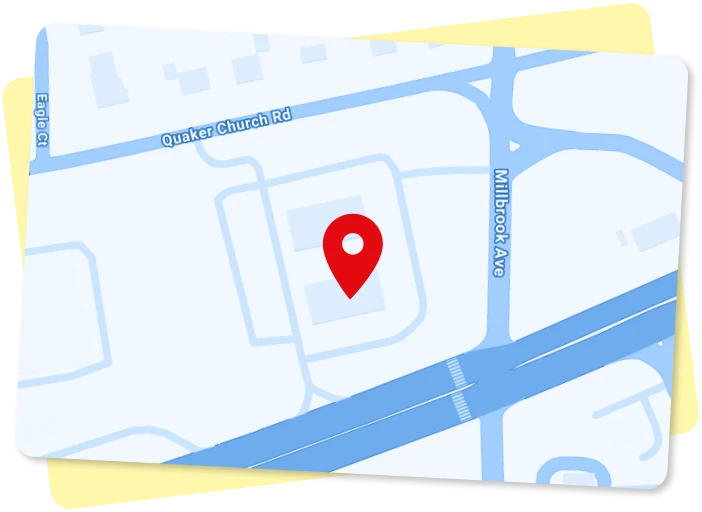Teething
Baby teeth usually start appearing from 6 to 12 months of age. It is accompanied by irritation, soreness and swelling of the gums, which can last for a while until the child turns three. In addition, you can massage the gums with a clean finger or make use of a cold teething ring for the child. Avoid the use of teething biscuits because of its sugar content.
A Child’s First Dental Visit
A child’s first birthday is the appropriate age for his/her first dental visit. We do not want your child associating dental visits with pain or fear, so our office is warm, bright and comfortable during the first visit in order help him/her feel relaxed and get familiar with our staff and doctors. This builds trust and ensures less anxiety during subsequent visits.
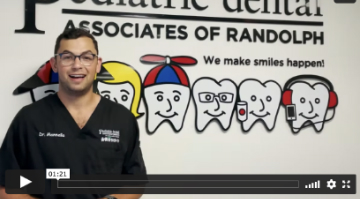
Preparing Your Child for Their First Dental Visit
Why Primary Teeth Are Important
Primary teeth are important for several reasons. Foremost, good teeth allow a child to eat and maintain good nutrition. Healthy teeth allow for clear pronunciation and speech habits. The self-image that healthy teeth give a child is immeasurable. Primary teeth also guide eruption of the permanent teeth.
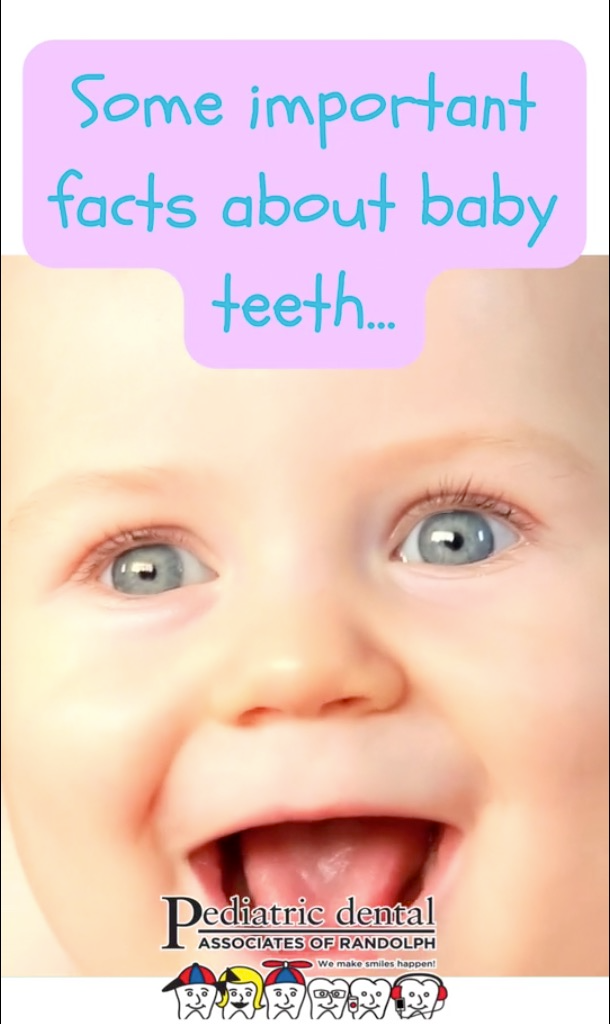
Baby Teeth Are Important
Good Diet and Healthy Teeth
A good diet is directly related to healthy teeth. Acids that erode tooth enamel are mostly formed from reaction of bad food and the bacteria in the mouth. Avoid giving your child processed foods and snacks that encourage the development of cavities. Feed them more of natural foods like cheese, low-fat yogurt, vegetables, etc., for healthy teeth, bones, gums and tissues.

Drinking Water
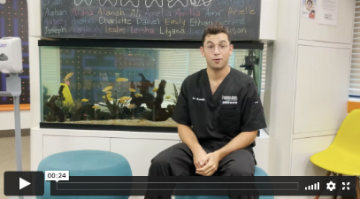
Candy To Avoid

Apples: A Great Snack Choice

Snacks To Avoid Before Your Dental Visit
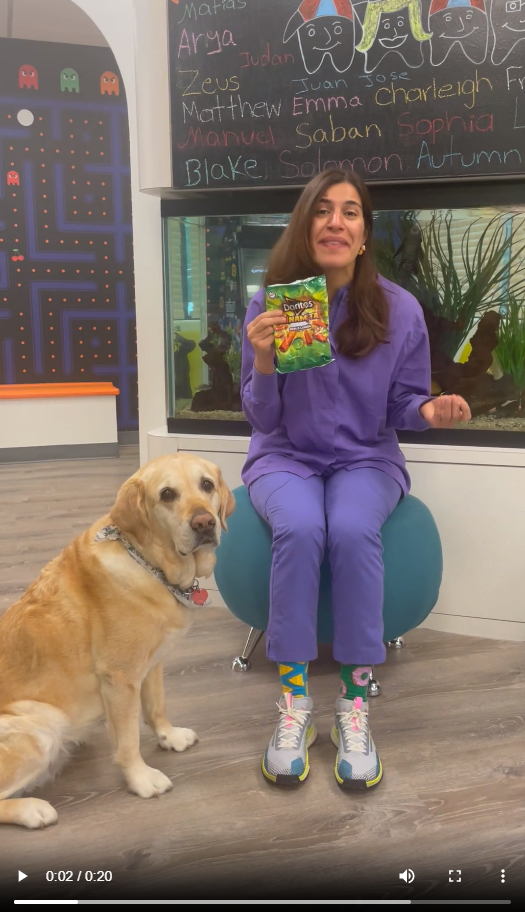
Choose Healthy Snacks
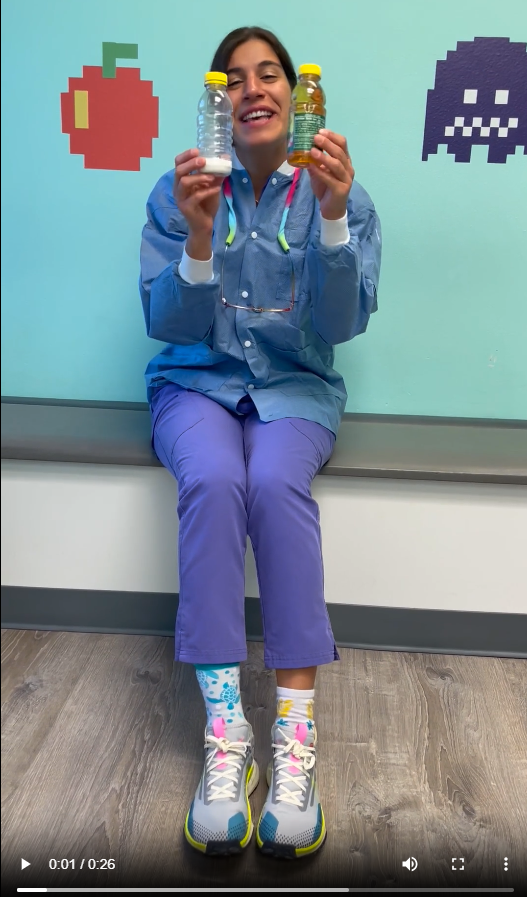
Apple Juice or Water
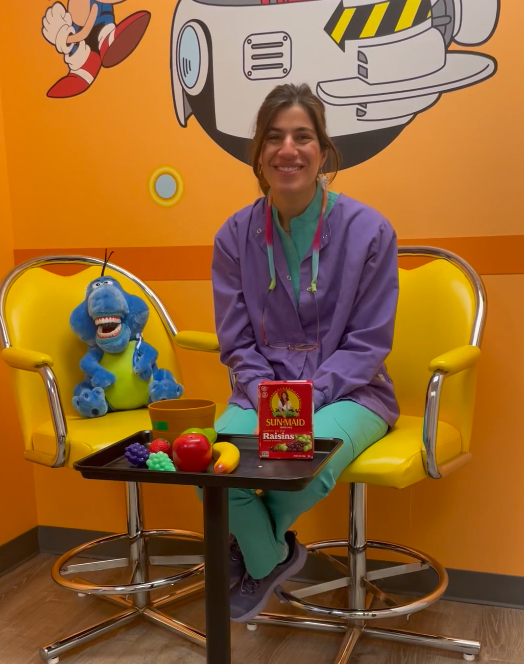
Fresh Snacks
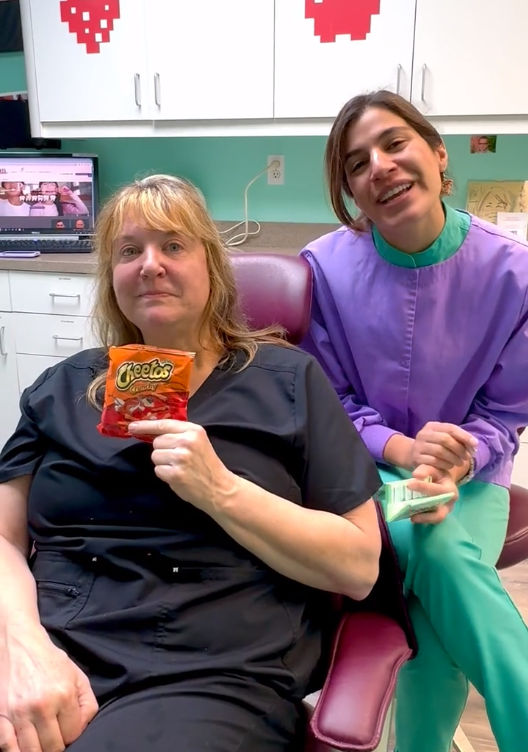
Mid-Day Snacks
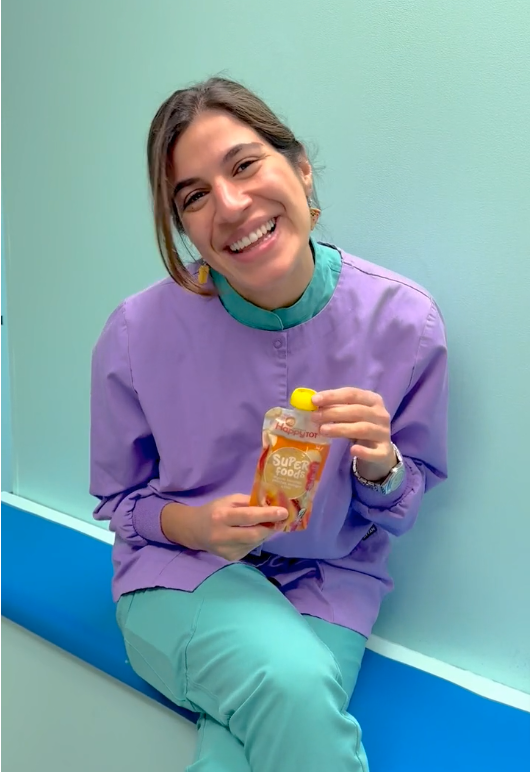
Fruit Pouches
Infant Tooth Eruption
Baby teeth start erupting as early as 4 months of age. The two bottom front teeth are usually the first to come out, followed by the two top front teeth. The rest of the baby teeth appear over the course of the next 2 years. As the baby turns 3 years old, all the 20 baby teeth should have fully erupted. This eruption is random and does not follow any defined pattern.
From the age of six, the permanent teeth will start replacing the baby teeth. The first set of permanent teeth to appear are usually the bottom front teeth and the first set of molars and this eruption continues until about the age of 21. The total number of permanent teeth in adults is 28. This number increases to 32 with the eruption of the third set of molars also known as wisdom teeth.
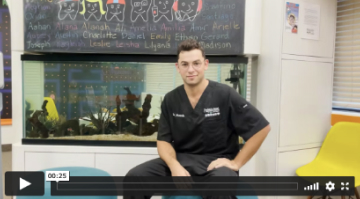
Shark Teeth
Preventing Baby Bottle Tooth Decay
You can prevent this type of tooth decay by avoiding feeding your baby milk prior to sleep. Some babies find it more comfortable to fall asleep during a meal. Such babies should be fed with water during such periods. You can also use a pacifier. Urgently inform us if you notice any strange change in your baby’s mouth.
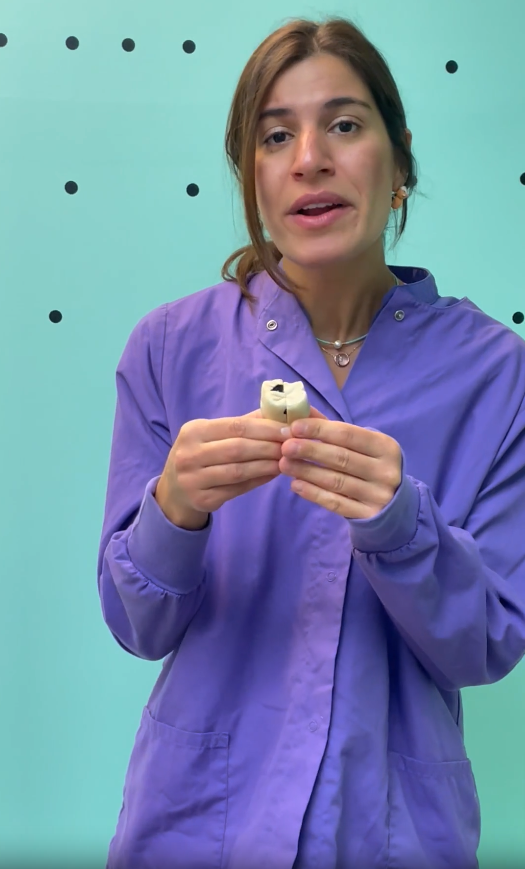
Baby Cavity
Learn more about early dental care in Randolph, New Jersey, by calling Pediatric Dental Associates of Randolph at 973-989-7970 and scheduling a visit with our pediatric dentists, Dr. Matt and associates. We are happy to serve Morris, Sussex, Essex and Warren County.

